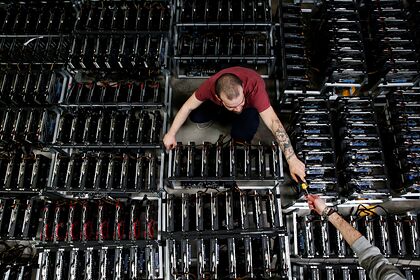The Swedish financial regulator has proposed to the EU to ban mining 
Head of the Swedish Financial Conduct Authority (Finansinspektionen) Eric Tedeen and the head of the Environmental Protection Agency ( Naturvаrdsverket) Bjorn Reisinger proposed to the European Union to prohibit mining of cryptocurrencies using the Proof-of-Work (PoW) algorithm. The joint statement has been posted on the Finansinspektionen website. The mining of digital money is holding the region back from meeting the goals of the Paris Agreement on climate change, officials say.
Proof-of-Work is a mechanism by which the authenticity and integrity of cryptocurrency transactions is verified. PoW-based systems are extremely resource intensive. Currently, this algorithm is used by most of the most popular cryptocurrencies – Bitcoin, Ethereum, Litecoin, Dogecoin and others. Ethereum developers have already announced plans to move from PoW to another mechanism – Proof-of-Stake (PoS), which does not require mining.
The University of Cambridge and the Digiconomist research project have calculated that daily mining of 900 bitcoins leads to the release of up to 120 million tons of carbon dioxide into the atmosphere per year. According to experts, mining Bitcoin and Ethereum requires about twice as much electricity per year as supplying all of Sweden. Drawing attention to these indicators, Swedish regulators have developed two more proposals that will help to cope with the environmental impact of crypto mining at the national level.
First, Tedeen and Reisinger announced the need to prevent the development of mining and the discovery of new “mining” enterprises in Sweden. Secondly, regulators have proposed introducing a new restriction for companies that trade or invest in cryptocurrency mined on the basis of PoW. Officials said that such firms should be prohibited from describing their activities as environmentally friendly or “sustainable.”
Canada has come up with a way to compensate for the harm of mining to the environment. Local company MintGreen said in October that it will start heating more than 100 residential and commercial buildings in North Vancouver with energy from mining farms. This technology will help prevent 20 thousand tons of greenhouse gases from entering the atmosphere, which could be produced by natural gas.